Posted by on
03/10/2024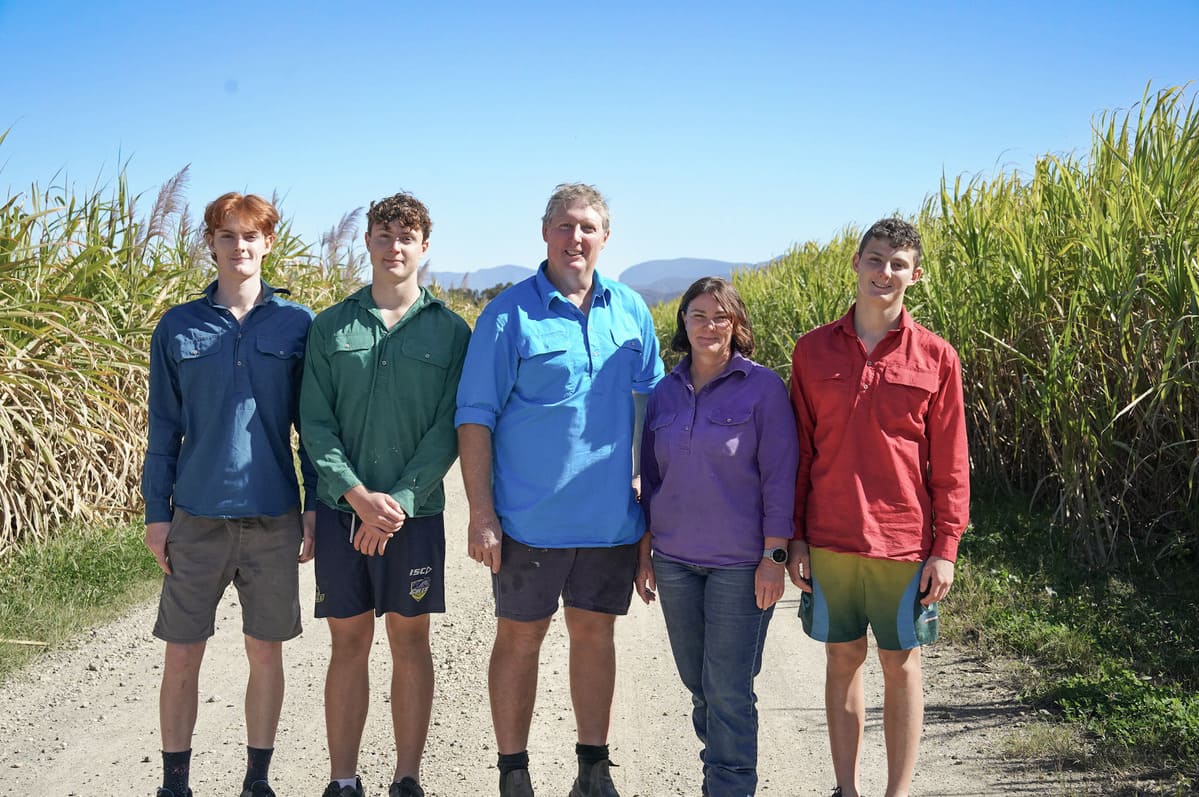
Scott and Amanda Monaghan with sons, Josh, Riley and Liam
Adaptability, flexibility and long-term vision has defined Scott and Amanda Monaghan’s farming journey, and from humble beginnings, they are now enjoying the life they dreamed of.
From an early morning swim in the ocean, to morning tea in the paddock, the Monaghan’s enjoy the perks of both lifestyle and agriculture as sugarcane farmers in the coveted Tweed Valley.
But their path wasn’t always so sweet.
Starting on their first small, run-down property in Queensland’s Biloela district, the couple has gradually progressed and grown their enterprise, continually embracing business opportunities.
And while increasing land prices continue to squeeze potential young farmers out of property ownership, Scott believes there is still a pathway without the reliance on an existing inter-generational farming enterprise.
“If you’re willing to go west and take a risk, I do believe there is still opportunity for young people to buy their first farm. It’s how we started, and I believe it’s a theory that still works today.”
Fortune favours the brave
Scott explains that during his 20s, with money saved as an apprentice fitter and turner, he and Amanda were able to buy “the most run-down property in the region, which is all we could afford”.
“It was a lucerne and grain property near Biloela, and people said we paid too much for it, but we could see the potential – it had a good irrigation allocation, a house with good bones and development opportunity.”
“We got to work fencing, repairing the house, fixing the irrigation and getting the land productive again, and when we sold it seven years later, we tripled our money,” Scott explains.
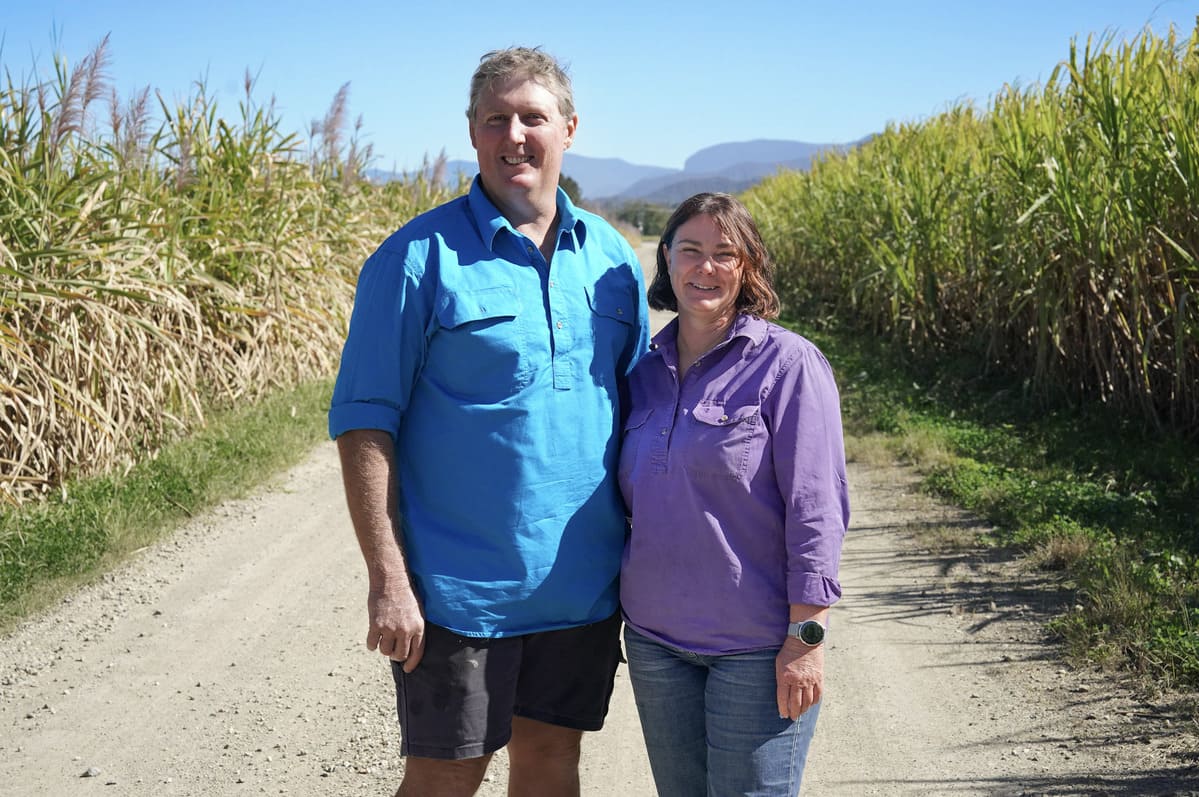
Scott and Amanda.
From here the couple set their sights south-west, purchasing a cotton and lucerne property in the Theodore district.
The family spent fifteen years in Theodore, continually improving the operation and expanding their business through the purchase of a neighbouring farm.
Their four children, Keeley, Joshua, Riley and Liam were also huge contributors to the cause.
“They were never afraid to get their hands dirty and work hard, with Keeley often taking the initiative to get up at the crack of dawn to shift irrigation pipes and save her Mum a job,” he proudly reflects.
When another neighbour then approached Scott wanting to buy their whole enterprise, he laughed off the suggestion.
However, with rapidly increasing input and power costs, and the intense cotton-growing lifestyle wearing thin, the couple re-considered.
“Amanda had supported me for so long in our farming journey, which at times had been very stressful, and at the end of the day she really wanted a better work and family balance.”
“We’d spent many years going hard, we were keen for an opportunity to enjoy some sort of lifestyle with our children, so a couple of years later we phoned that neighbour again and he was still very much interested.”
Their next step wasn’t quite so easy – with an extensive wish list, Scott laughs that looking for their next enterprise was like searching for the Holy Grail.
“I really wanted to still be farming and have some irrigation, and Amanda wanted to be close to the coast – but not where there were crocs, or irrigation – so we were quite specific in our requirements!” he laughs.
Their search serendipitously coincided with a cane farm they saw for sale in the Queensland Country Life on the Tweed Coast, and they wasted no time jumping in the car and driving the eight hours to inspect it.
“I knew immediately from the look of sheer delight on Amanda’s face that this was the spot – despite the fact I had zero cane growing experience!”
While sad to leave Theodore – a community in which they had family, friends and where their children were raised – Scott’s approach to opportunity centred around adaptability.
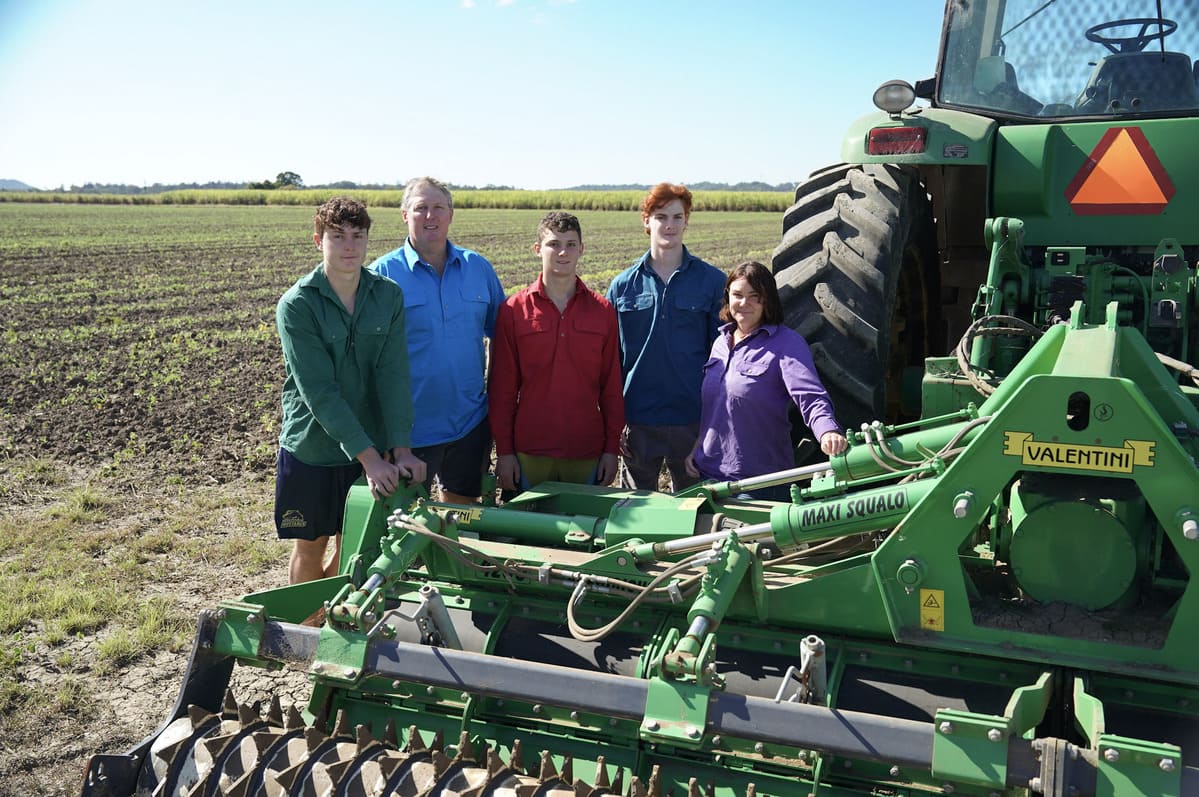
The family is enjoying a new challenge, and lifestyle in the Tweed Valley.
“Amanda and I both came from families who shifted around. Amanda’s father managed properties throughout Queensland, and while my parents were from farming families, my Dad was a policeman and my Mum was a nurse, and lived across central and southern Queensland.
“In a way that’s the beauty of not being tied to an intergenerational property, there’s less sentiment, and we’ve gained enormously through the ability to flip farms, just like people flip houses.”
“We knew what our end goal was, we weren’t afraid to take a risk, and that bigger picture was always front-of-mind.”
From bush to beach
Since the move in 2021, his three teenage sons have now had the opportunity to play cricket for the first time ever.
There’s no need for boarding school, and with their farm just 12 minutes to Kingscliff, the family has the beach, restaurants and shops on their doorstep.
“Brisbane is only one and a half hours away, yet we’re still able to part of a great little 500 people community, Tumbulgum, for that small-town spirit and it really is the best of both worlds.”
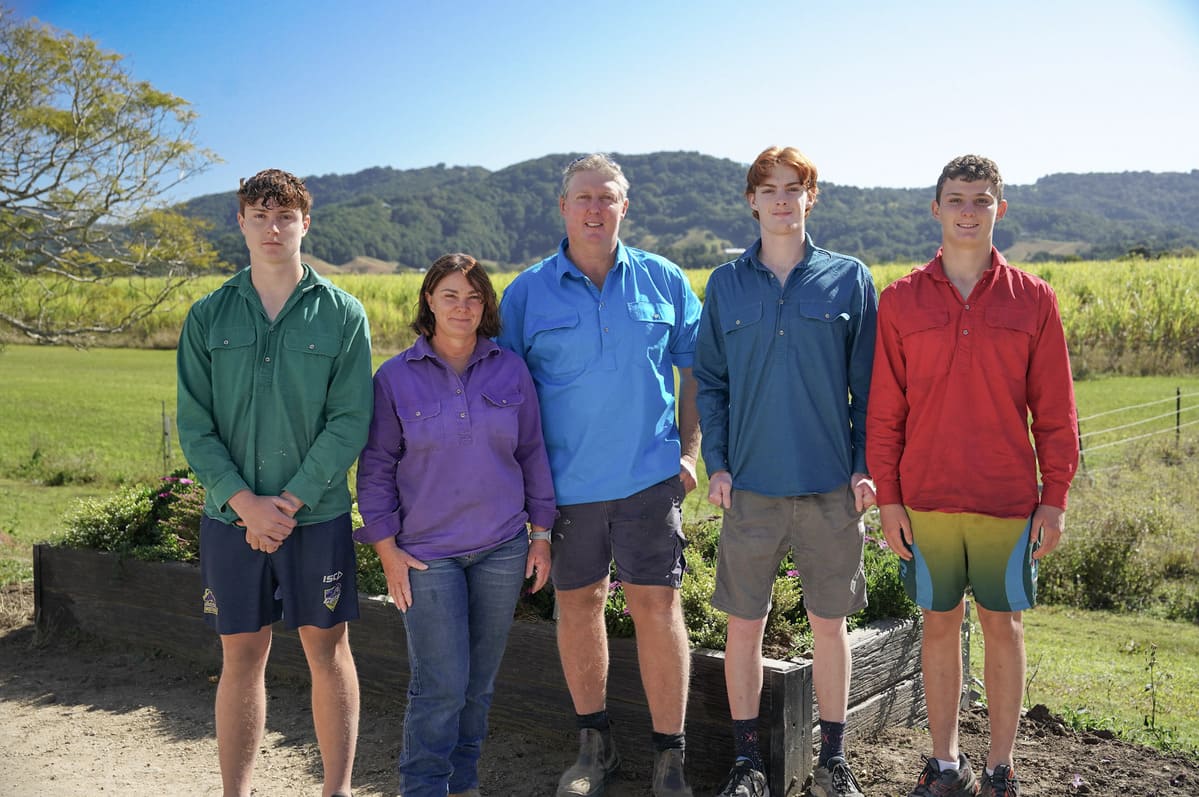
The Monaghans
While the financial opportunity producing cane is not as lucrative as cotton, it is a lifestyle compromise the whole family was willing to wear.
“Although the income isn’t as much, we’ve probably halved our risk – and stress levels – and we can spend more time together as a family – and I can still be doing what I love, which is farming.”
Yet, as everyone knows, nothing in farming is bulletproof – with the family’s entry into the industry coinciding with two floods, one the biggest on record.
“As soon as we arrived it started raining – the neighbours were all ready to buy a first-class plane ticket to get me out of there!”
They lost a soybean crop, and while they endured a 25 percent yield loss on their cane, it was able to withstand the inundation.
“Cane doesn’t suffer a full loss after flood, unlike many other crops. The water came up and down pretty quickly, and while we did lose yield it bounced back the following year.”
If anything, the flood was a stark reminder you can never be complacent when farming, and going forward he now knows what to expect, and how to be better prepared.
Learning the ropes of a new industry
Scott’s steep learning curve to manage a cane operation was eased thanks to what he describes as “an extremely welcoming and generous industry”, with the region going above and beyond to help him gain knowledge and develop networks.
“The farm we purchased had previously been split between two share farmers, and one was in his 60s – a fourth-generation cane farmer who lived next door to us, and his support and advice was invaluable.”
The local sugar mill, Sunshine Sugar, had also been highly encouraging, even going so far as to provide a free agronomy service.
“The industry is working hard to attract and retain people, and as a result it has a wonderful culture of support and enthusiasm.”
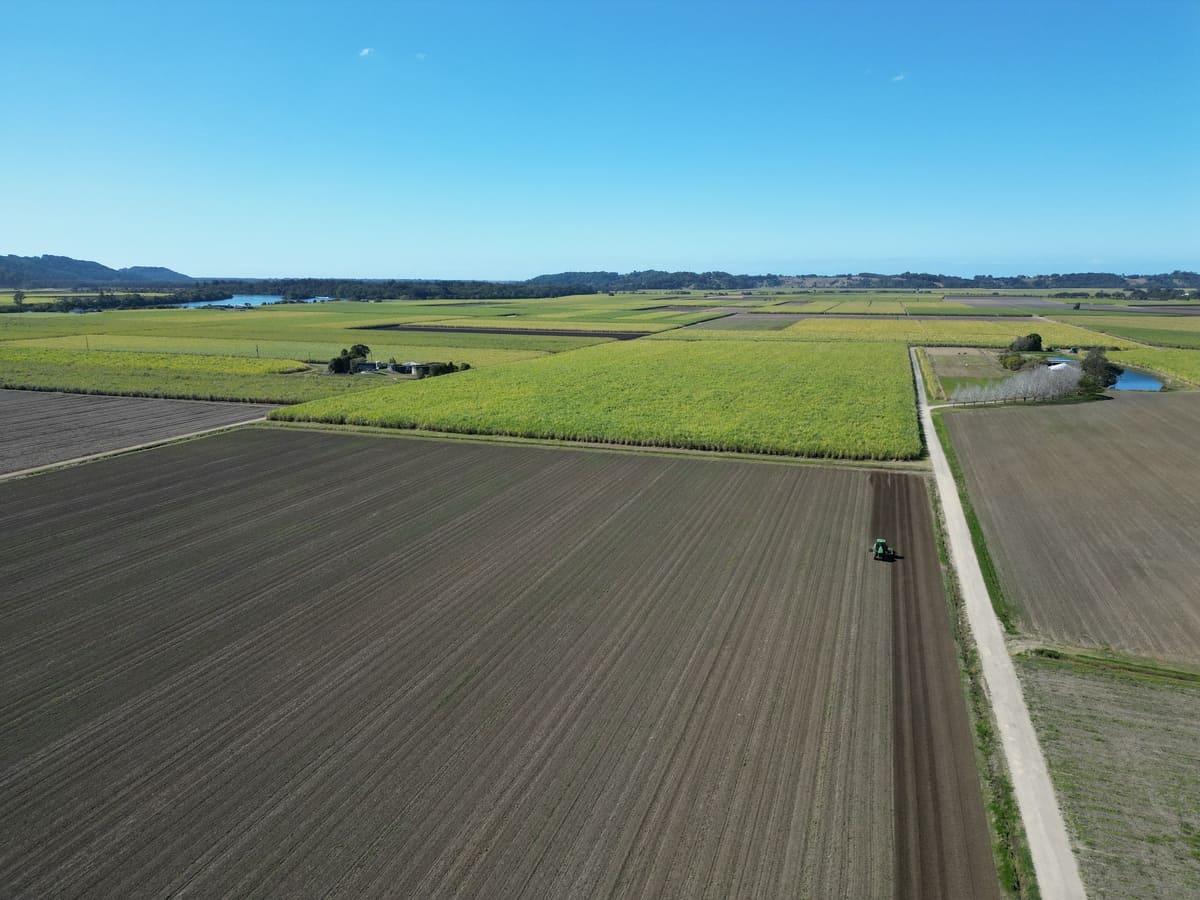
A new enterprise, and landscape
While Scott’s still getting used to the purr of distant road noise, the farm’s size also requires some adjustment.
“We’re farming 162 hectares, which is considered quite large for the region – but it’s a far cry from rural Queensland!”
The family hopes to purchase more land in the area for additional scale, and with Joshua having just finished school, potentially lay some deeper roots for the next generation.
“All the kids have an interest in agriculture, and we don’t want to miss out on an opportunity to expand our footprint in such a tightly held region.”
Having moved the majority of their machinery from Theodore, the additional scale would also ensure greater efficiencies.
Supporting them on this journey has been their Rabobank rural managers, previously Michael Fletcher in Rockhampton, and now Andrew Flynn out of the Brisbane branch.
“Michael would come and visit us in Theodore regularly and was brilliant – he knew our long-term vision and supported us to make that a reality.”
Andrew has been equally valuable.
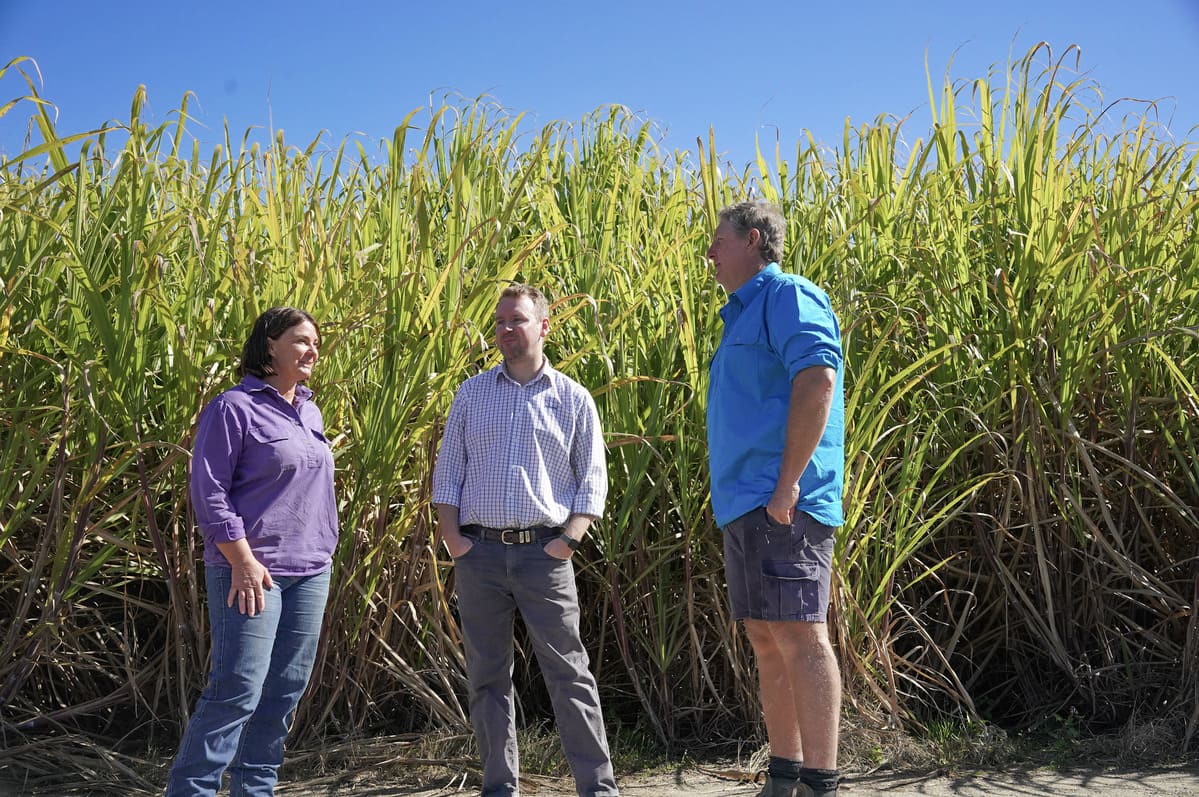
Rabobank’s Andrew Flynn on farm with Amanda and Scott.
“When Andrew first started, we took him for a drive around our Tweed property, then thought we’d go for a look at the neighbour’s farm we were hoping to purchase – and let’s just say he’s been working very hard for us ever since!”
“That’s the beauty of Rabobank staff, they’re genuinely rural, they know what we’re talking about – they know the industry, land values, opportunities, threats – they’re not just bank managers rotating through agribanking, they’re specialised and they’re here for all seasons.”
And with the sugar price at a record high, a farm investment in one of Australia’s premium regions, and an enviable lifestyle to boot, Scott has come a long way from his days as a tradie saving for his first farm.
“I had this plan when I was 20, and I’m 47 now so it didn’t happen overnight, but if you’re willing to take a few risks and move for opportunity, then who knows where you’ll end up.”
